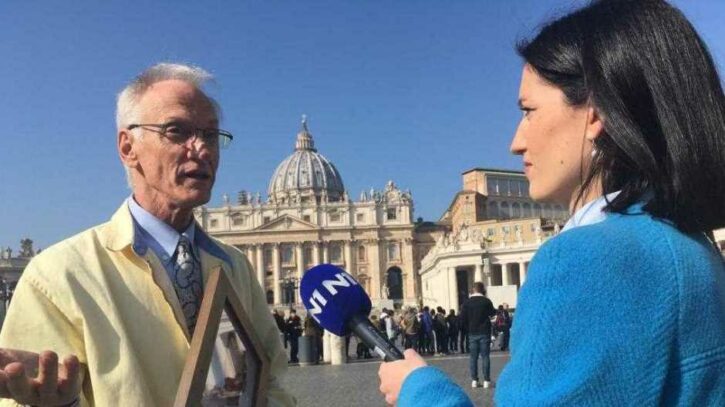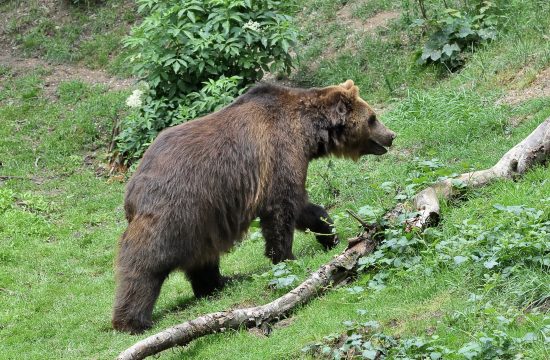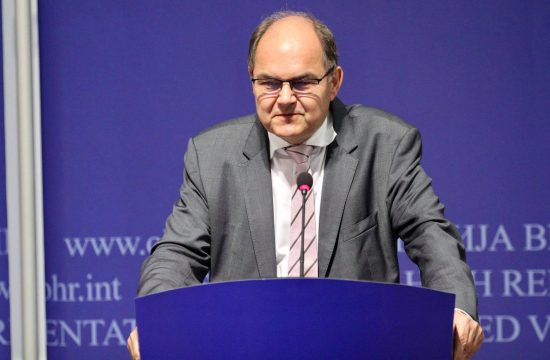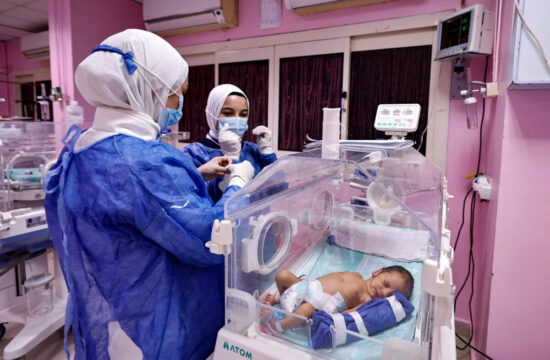
Almost 200 Catholic officials from all over the world gathered in Vatican on Thursday for a historic four-day summit, convened by the Pope in an attempt to address sexual abuse in the Catholic Church. N1’s Nina Kljenak talked on Friday to Phil Saviano, one of the survivors who came to Vatican for the summit.
Saviano’s revelations to the Boston Globe in 2002 led to an outpouring of stories from victims of abuse in the United States, and the subject became one of the most explosive stories the country had seen in years. The Boston Globe report on the extent of the abuse by the Catholic Church in the United States inspired the movie Spotlight, the 2016 Oscar winner for best motion picture.
“I thought I am to blame”
Saviano was sexually abused by the priest in his home town when he was 12 years old.
“I came from a very Catholic family. I thought this behaviour must be sinful, it must be a moral sin, and I thought I had to confess this. I have to go to confession, but my abuser is also my confessor, so I had to go to confession to the same priest who is sexually assaulting me,” Saviano said.
“I didn’t want anybody to know about it, and somehow I felt that I’m to blame here.”
He came forward for the first time at the age of forty in 1992, reaching out to the Boston Globe after seeing stories from the 1970s, some ten years after his own abuse, about people who suffered sexual abuse by a priest in New Mexico. From the accounts, Salviano recognised the priest as his own abuser.
“I realised that no one in the Church had ever stopped him. The story also said that in 1980 he had served in parishes in Texas and in 1992 he was in Denver, Colorado,” he said.
The reaction from the diocese in 1992 was one of surprise. They said there have never been any problems with the priest.
“I filed a civil lawsuit to get access to his personnel file. What I found was that, throughout his career, at least six bishops in four states knew that he was a child molester. He was caught so many times that he was sent to four different Church-run psychological treatment centres. The abuse the children went through in New Mexico and Texas could have been prevented if they had handled him properly,” Saviano said.
“It fuelled my activism. I started meetings for other victims, interviews to try to get the word out.”
Later in the 1990s, Saviano established the New England chapter of SNAP – Survivors’ Network of those Abused by Priests. SNAP, founded in the US in 1988, is the largest group for helping survivors of sexual abuse by the clergy.
After the Boston Globe broke the story, a lot has changed in the United States.
The American bishops established a series of rules, the Dallas Charter for the Protection of Children. It introduced a zero tolerance policy for sexual abuse, but it was also weak in a couple of important points: there were no consequences for bishops who protected abusers and simply moved them around from parish to parish, Saviano said.
But, he added, there were still no regulations for the rest of the world. “And we’ve learned that this is a world problem.”
Ending the culture of silence
Asked how the culture of silence can be broken, especially in countries with a large Catholic population, Saviano said the hard part is getting started.
“The way it generally works is somebody has to have the courage to come forward. Usually, when that first person speaks out, it gives courage to other people,” he said. “It is possible to have this experience as a child, and to grow up and still have a happy life, and not let the abuse completely destroy you.”
The Vatican summit is a historic event: for the first time in history, the Church is confronting the epidemic of sexual abuse by members of the clergy, with Pope Francis calling for concrete changes.
On Wednesday, summit organizers met with abuse survivors from around the world, saying afterwards that the meeting will help them “better understand the gravity and urgency of the difficulties” church leaders will face during the four-day summit.
“I met with the organisers of the summit the other day, and I was pleasantly surprised that they were willing to engage in a very frank discussion,” Saviano said.
“I don’t know what the answer is going to be, but I can tell you I have been more optimistic than I’ve been in a long time,” he added.
The summit organisers plan to have more dialogue with the survivors, more meetings. “I do feel they’re starting to head in the right direction.”
Follow N1 via mobile apps for Android | iPhone/iPad | Windows| and social media on Twitter | Facebook.




